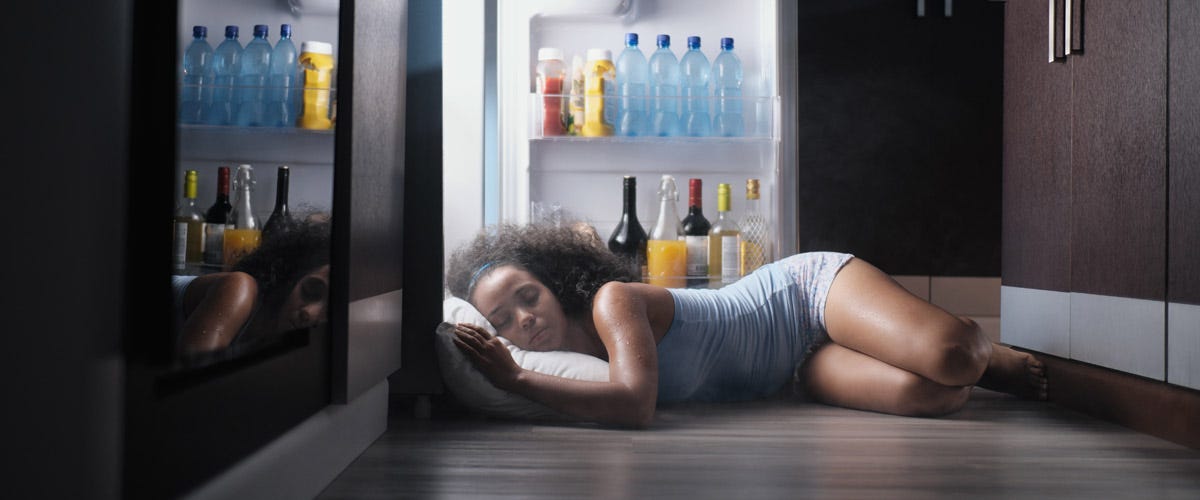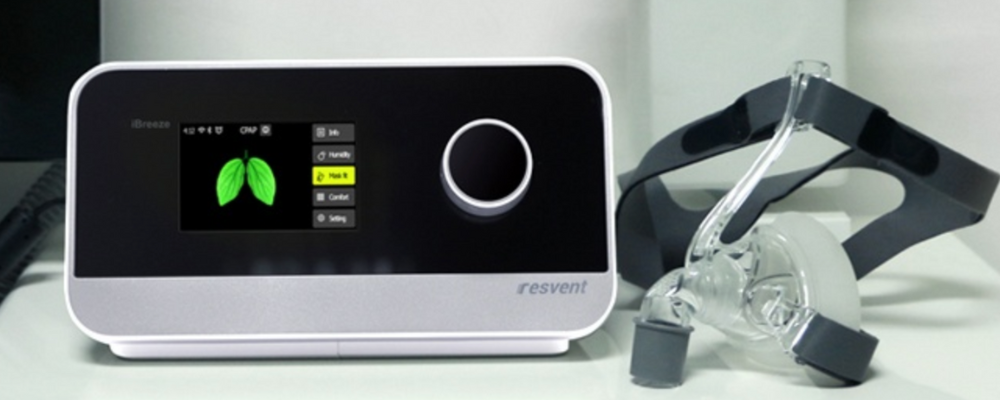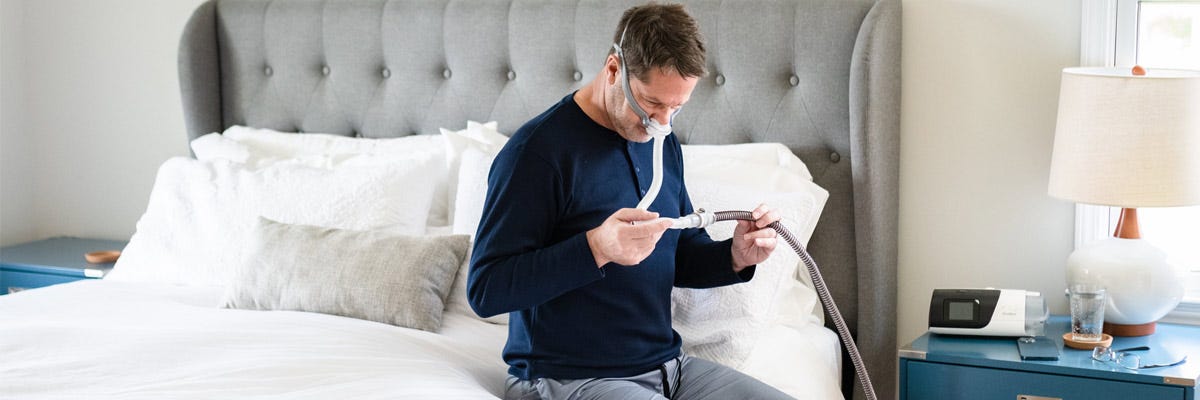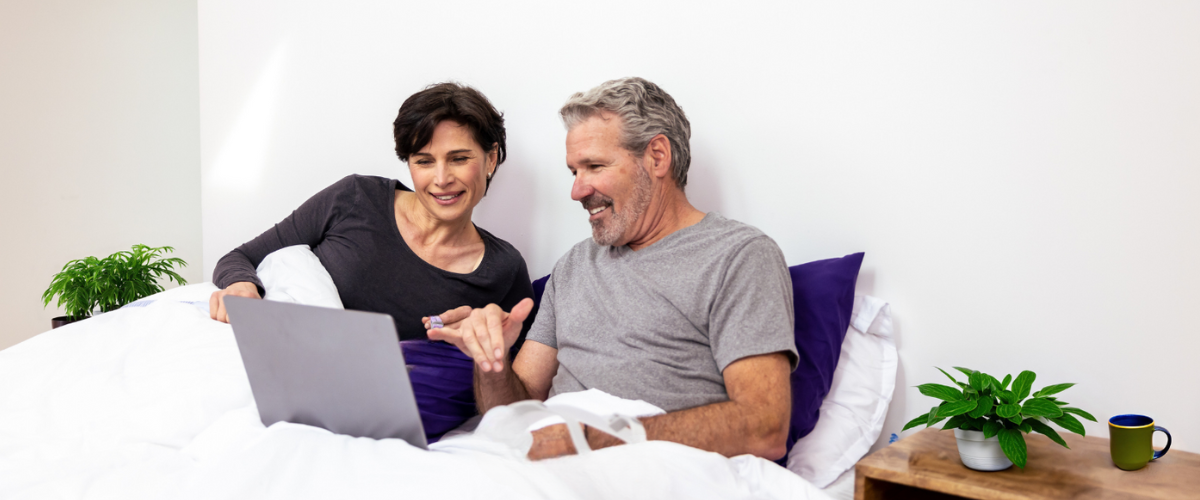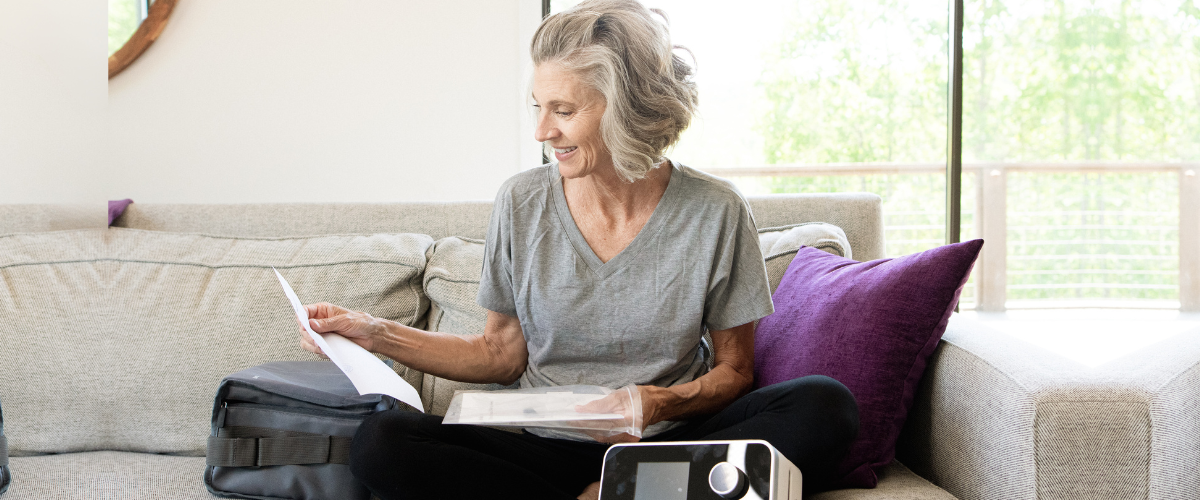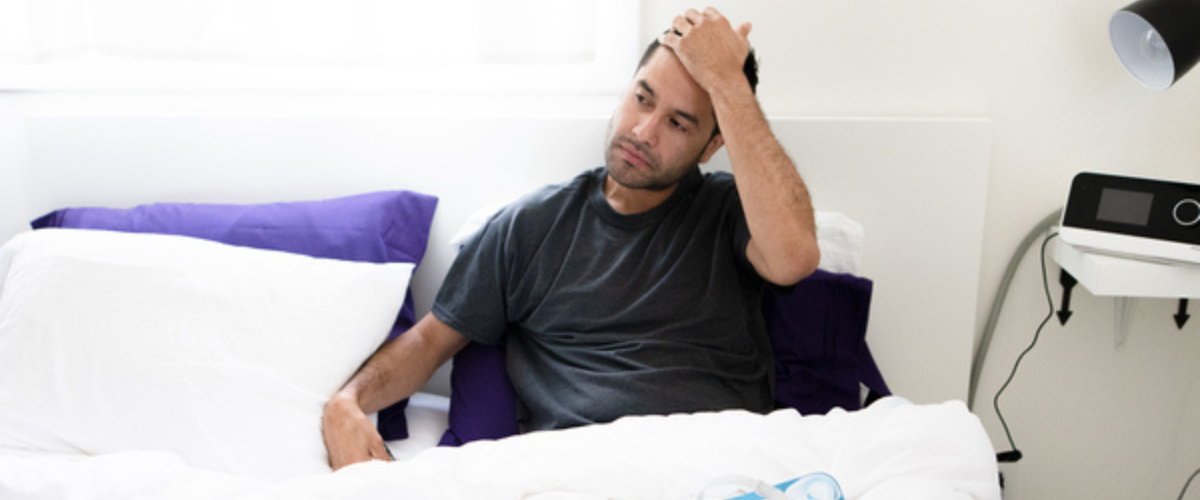Feeling too hot to sleep? The summer months roar in with a scorching sun, and humidity can make you feel sticky and uncomfortable, wanting to forgo blankets entirely. You may want to burn your duvet, but this is not the way. Why is getting quality sleep so difficult when you feel hot?
Hang in there as the heat rises and stick(y) with us to see why being too hot can keep you from sleeping. We’ll talk about ideal temperatures for sleep, and then share 5 tips to help you avoid overheating. Air conditioning isn’t the only way to help you get a good night’s sleep!
Table of Contents
Can Being Too Hot Stop You From Sleeping?
The short answer is yes, because bodies differ! Human core temperature varies by body, age, activity, and time of day. Given so many factors and how each body manages its temperature regulation, it’s no surprise that some of us struggle while others snooze a summer night away like the happiest iguana.
No matter your heat preference, it’s normal for your core body temperature to drop by several degrees at night as it slows down to rest. This drop signals your brain to release hormones like melatonin, which help you to fall and stay asleep. But when both your skin and internal organs are simmering in excessive heat, your high core temperature can prevent your body from releasing these sleep-inducing hormones.
Once you’ve missed enough sleep from the heat, your circadian rhythm is thrown off balance. This makes better sleep elusive whether there’s a heat wave on or not.
Why Do I Feel Too Hot to Sleep?
The most likely culprits are environmental temperature and humidity. Sometimes the temperature of your sleep environment can simply be too high for you. Then, even if the temperature is in a range you can usually snuggle down into, high humidity can make sleepers feel worse by reducing the body’s ability to cool itself.
If hot air and night sweats aren’t the bogey men keeping you from your well-deserved shut-eye, it could also be one of these factors:
- Drinking caffeine or alcohol too close to bedtime
- Feeling stressed or anxious
- Certain medications
- Hormone levels brought about by pregnancy, menopause, or conditions like hyperthyroidism
- Getting sick (ex: flu, common cold)
- Sleep apnea
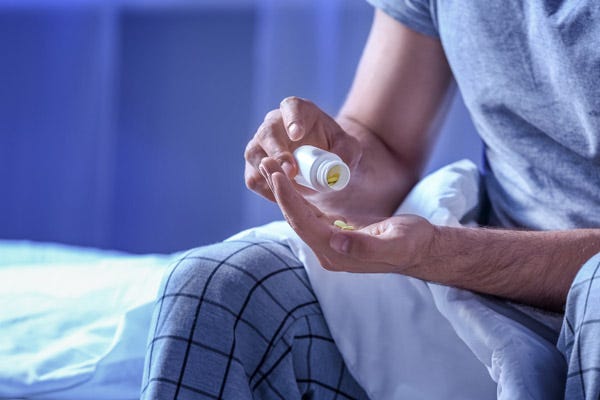

What Is the Best Temperature For Sleeping?
Experts recommend managing your sleeping environment to land between 60 to 70 degrees fahrenheit. Room temperatures above 74 (and below 55) may negatively impact your quality of sleep.
So with temperatures climbing higher, how can we manage our environments and bodies enough to get that REM sleep we need to stay functional?
An air conditioner, sure! Almost every home in the south has them, but if you live up north where they aren’t as prevalent, the investment in your health is worth it. If central A/C on a thermostat isn’t in the budget, strategically place a portable or window unit in the bedroom where it’s most needed. The whole house doesn’t need to be cold, just lower the bedroom’s temperature.
5 Tips For Falling Asleep On a Hot Night
- Drink a glass of water before bed to help lower the temperature of proximal tissues (tissues and organs close to the core of your body.)
- Take a warm shower before bed to help lower the temperature of your skin, which is itself an organ that needs cooling. A cold shower will wake you up - not the goal! Warm instead of cold water can still lower body temperature and make the air outside the bathroom feel cooler without jolting you awake.
- Switch to lighter sheets. The fuzzy flannel bedsheets of winter no longer serve you! It’s time to swap them out for cool cotton sheets and pillowcases that increase air flow.
- Use a dehumidifier to remove moisture from the air. This way air currents have the chance to dry your perspiration, lowering the temperature of the blood vessels in your skin. This in turn delivers lower temperatures to your core as blood circulates.
- Avoid vigorous exercise at least 1 hour before bed. Activity warms the core as well as the skin. This is the opposite of what your body needs to release melatonin!
When Temperature is Not the Cause of Sleeplessness
If these tips aren’t helpful for you, we highly recommend having a talk with your doctor. Your sleep issues may be due to an underlying condition such as sleep apnea, which comes with harsh consequences for your cardiovascular system if left untreated.
To learn more about why you feel too hot to sleep, be sure to explore the science behind humidity’s effects in this article from SLEEP (The Sleep Research Society’s official publication), presented by the Oxford University Press. For more information about the fascinating connections between climate change and human sleep loss, check out this research article from the Science.org journal Science Advances.
And finally, we can be an amazing resource for you if your doctor suggests the possibility of obstructive sleep apnea. From medical OSA explanations to treatment information and sleep positioning advice to advancements in CPAP technology, we’ve got the scratch to your itch about apneas. We hope you delve into our blogs and articles, but don’t stay up too late reading - you need your rest when you can get it!

